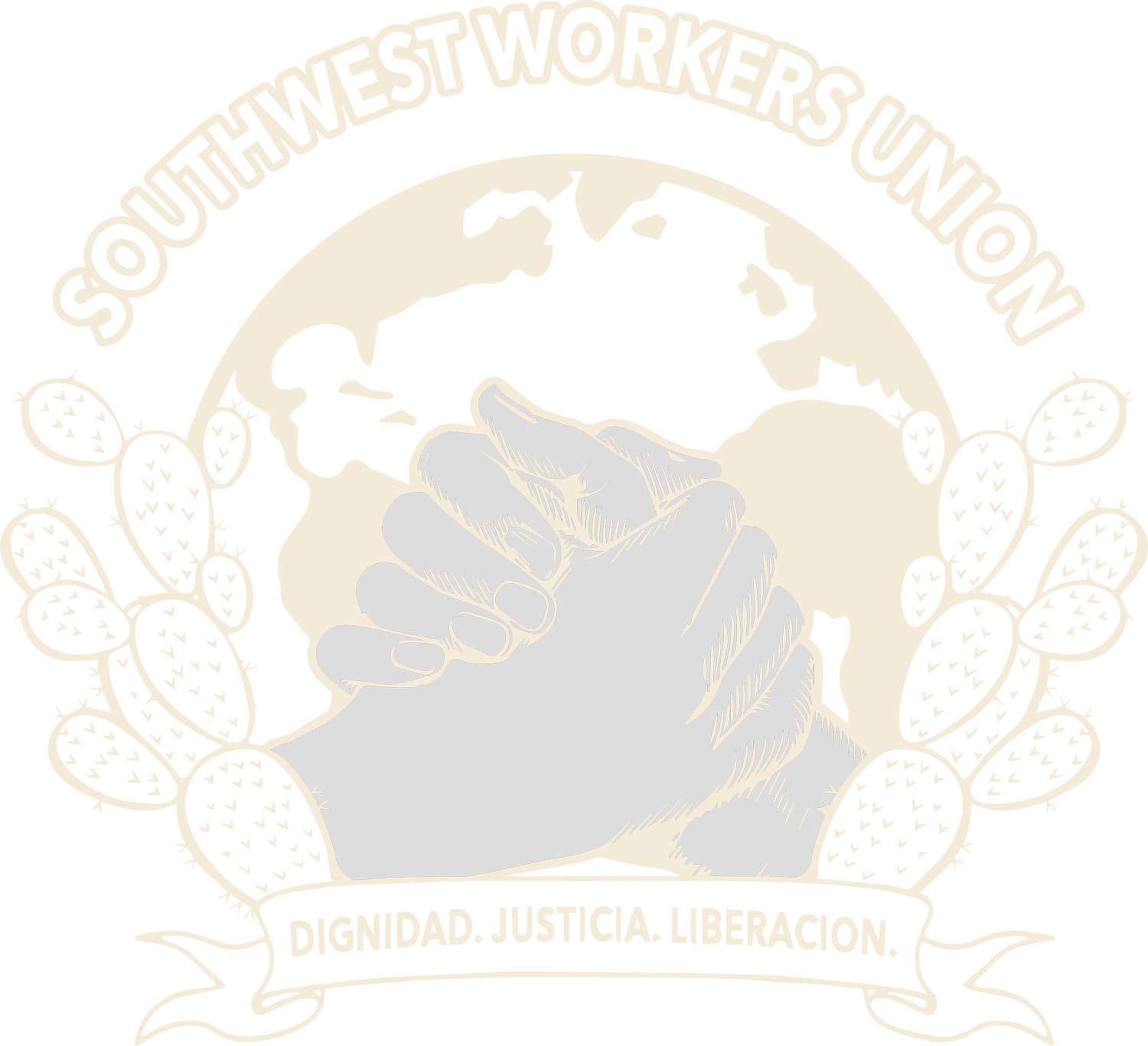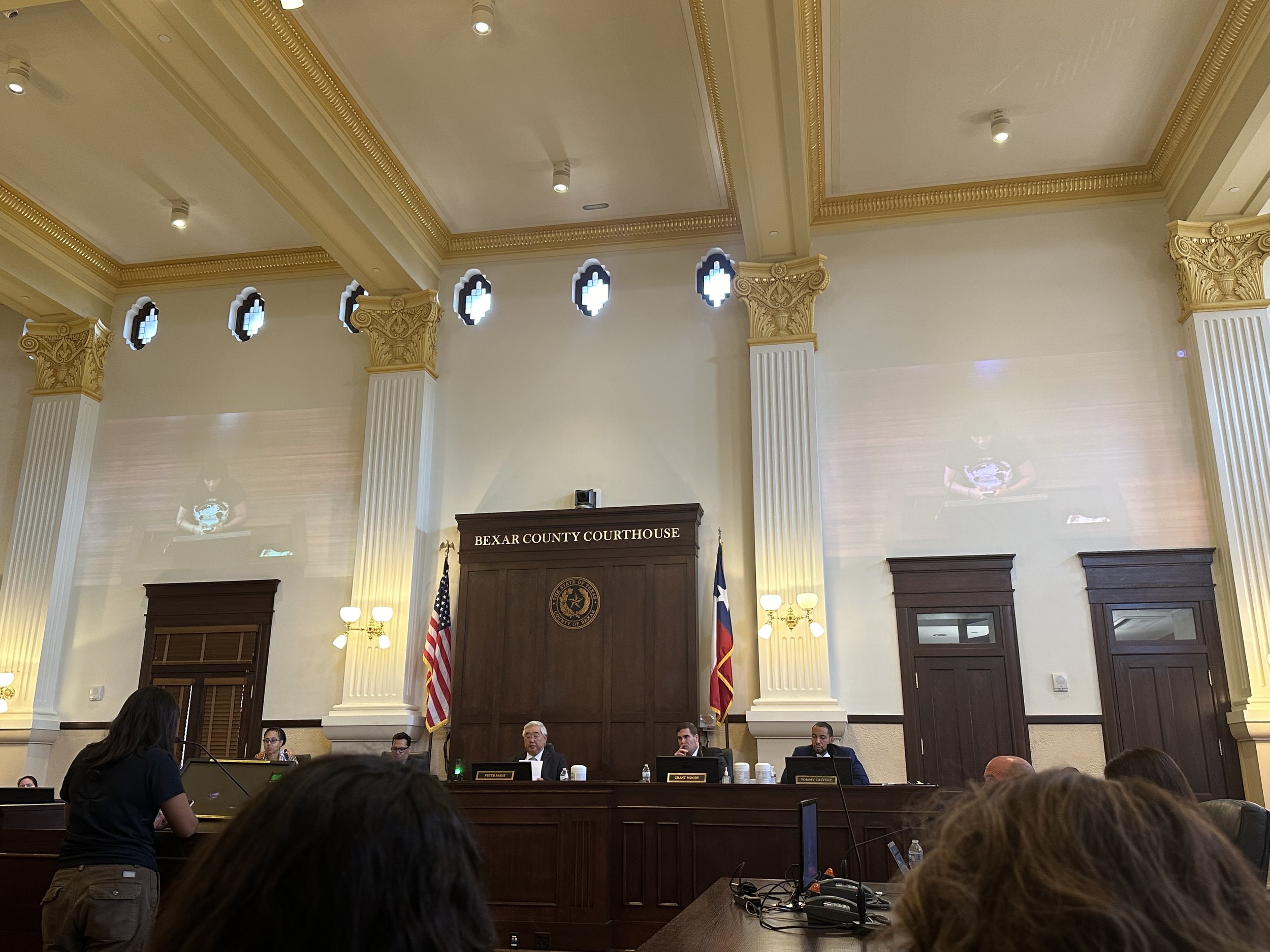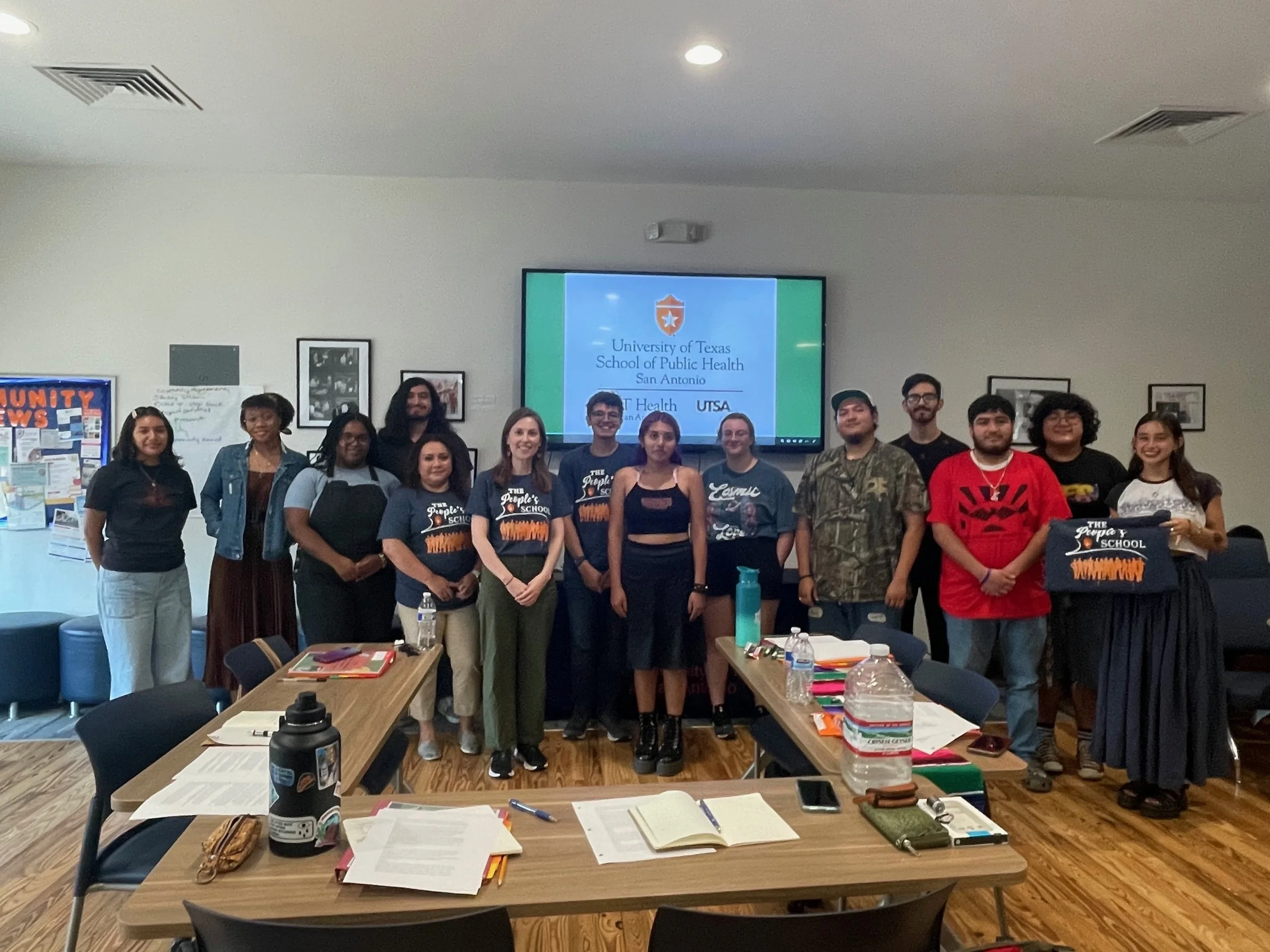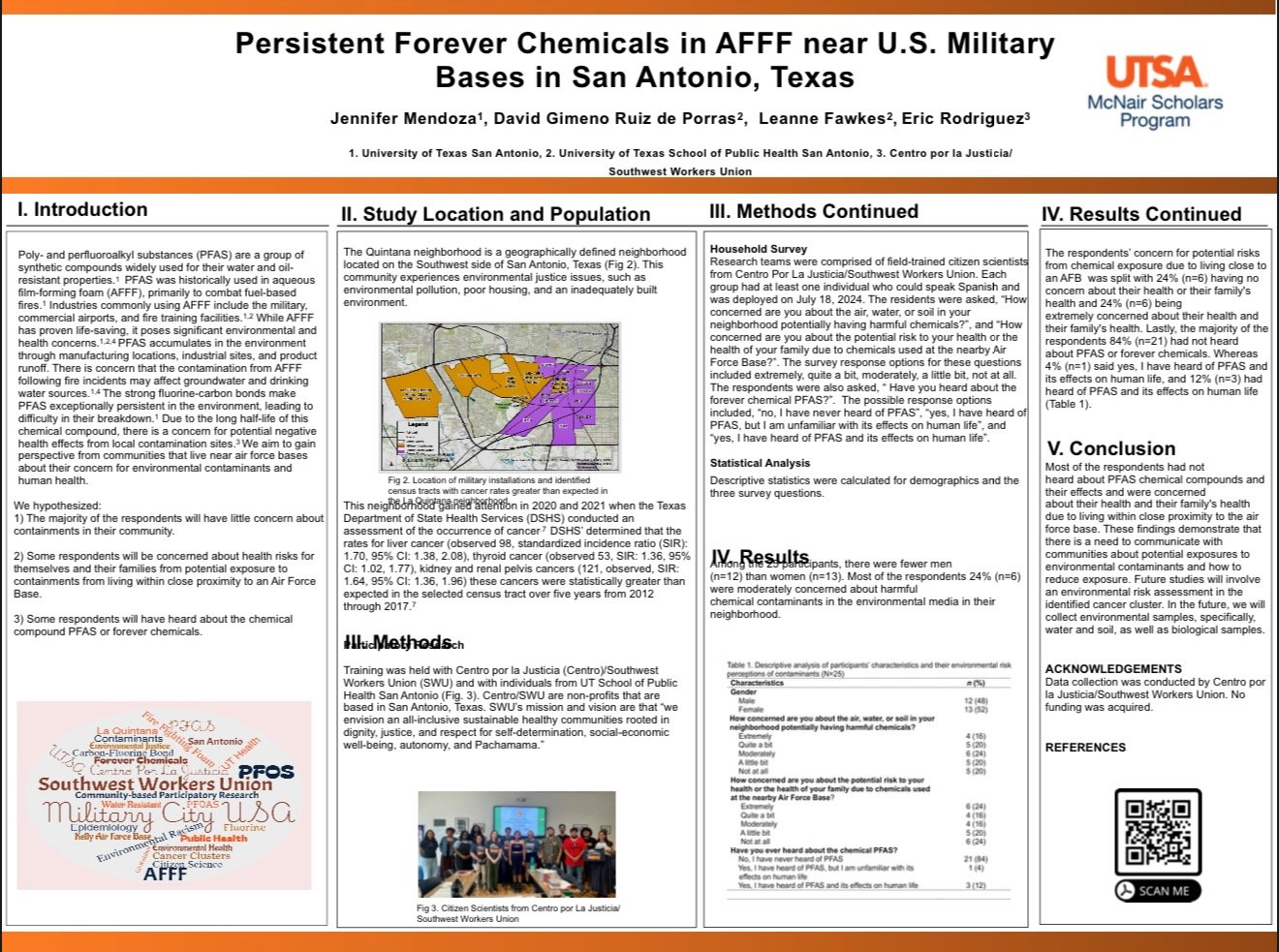OSJ INTERNSHIP RECAP: GRASSROOTS LEADERSHIP DEVELOPMENT
Our Summer Campaign Overview
This summer, our campaign focused on capacity building, popular education, and political analysis to address the deep connections between economic and environmental justice. Our efforts highlighted how systemic inequalities in these areas disproportionately impact disenfranchised communities, particularly in the face of extreme heat, energy inequities, and environmental pollution.
At the heart of our work was the Organizing School of Justice, a seven-week internship program involving 14 participants aged 16-24. This program provided hands-on grassroots organizing experience and emphasized drawing clear connections between economic and environmental justice issues. Collaborating with Deceleration News and UT Health, participants engaged in research, community outreach, and advocacy efforts designed to address urgent challenges affecting their communities.
Key Campaign Topics
Our campaign focused on three critical, interconnected issues: urban heat islands, energy rate inequities, and the lack of data on heat-related deaths. Together, these topics revealed how systemic failures exacerbate the vulnerabilities of historically marginalized neighborhoods.
Urban Heat Islands (UHIs):
Urban heat islands are urban areas where temperatures are significantly higher than surrounding regions due to limited green spaces, heat-absorbing infrastructure like asphalt and concrete, and discriminatory practices such as redlining. These factors leave underfunded neighborhoods particularly vulnerable to extreme heat, amplifying health and environmental disparities.
To illustrate the lived experience of residents in these areas, we conducted daily air temperature measurements during canvassing, comparing them to official weather reports. These data helped us emphasize the stark difference between reported temperatures and the conditions faced by those living in heat islands. This effort tied directly to broader concerns about energy costs and access to cooling resources.
Extreme heat is a growing reality, and urban heat islands exacerbate the harsh conditions we are forced to endure.
CPS Energy's RCE Rate Structure:
Energy inequity was another major focus of our campaign. CPS Energy’s Residential Capacity Energy (RCE) rate structure allows wealthier, high-energy users to pay $0.0450/kWh—35% less than the $0.0691/kWh rate paid by most customers—despite consuming thousands of kWh more.
We highlighted this disparity in conversations with community members, framing it as an economic and environmental justice issue. The inequitable rate structure disproportionately burdens low- and middle-income households, particularly those in urban heat islands, who are already struggling to afford cooling costs. Through these discussions, we identified over 610 supporters for a future campaign to restructure the rate system, aiming for fairness and sustainability.
Heat-Related Deaths:
Texas is experiencing increasingly severe heat waves, leading to spikes in heat-related illnesses and deaths. However, Bexar County has not officially reported any heat-related fatalities. Organizations like SAMMinistries suspect that dozens of deaths among unhoused populations may be heat-related, but the lack of local data prevents comprehensive understanding or action.
With support from Deceleration News, we gathered over 100 petition signatures and personal stories, advocating at the County Commissioners Court for equipping the Bexar County Medical Examiner with the tools necessary to track heat-related deaths accurately. This step is critical to ensuring accountability and directing resources to the communities most affected by extreme heat.
Soil Sampling in the Quintana Neighborhood
Environmental justice was also central to our efforts in the Quintana neighborhood, a community long impacted by environmental pollution and inadequate infrastructure. In collaboration with Dr. Leanne Fawkes and UTSA student Jennifer Mendoza, we conducted soil sampling to investigate PFAS (per- and polyfluoroalkyl substances) contamination. These chemicals, often linked to military use of aqueous film-forming foam (AFFF) to combat fuel-based fires, pose significant health risks to residents.
At the end of the program some interns went to UT School of Public Health tp present what they learned throughout the internship. Read more here.
Our Impact
Throughout the summer, we remained committed to addressing systemic issues at their roots. Through education, research, and advocacy, we worked to amplify community voices and drive meaningful change. Our campaign engaged 816 voters, identified 610 supporters, and collected over 400 stories from community members. These efforts laid the groundwork for future initiatives, empowering our communities to take action for environmental and economic justice.





